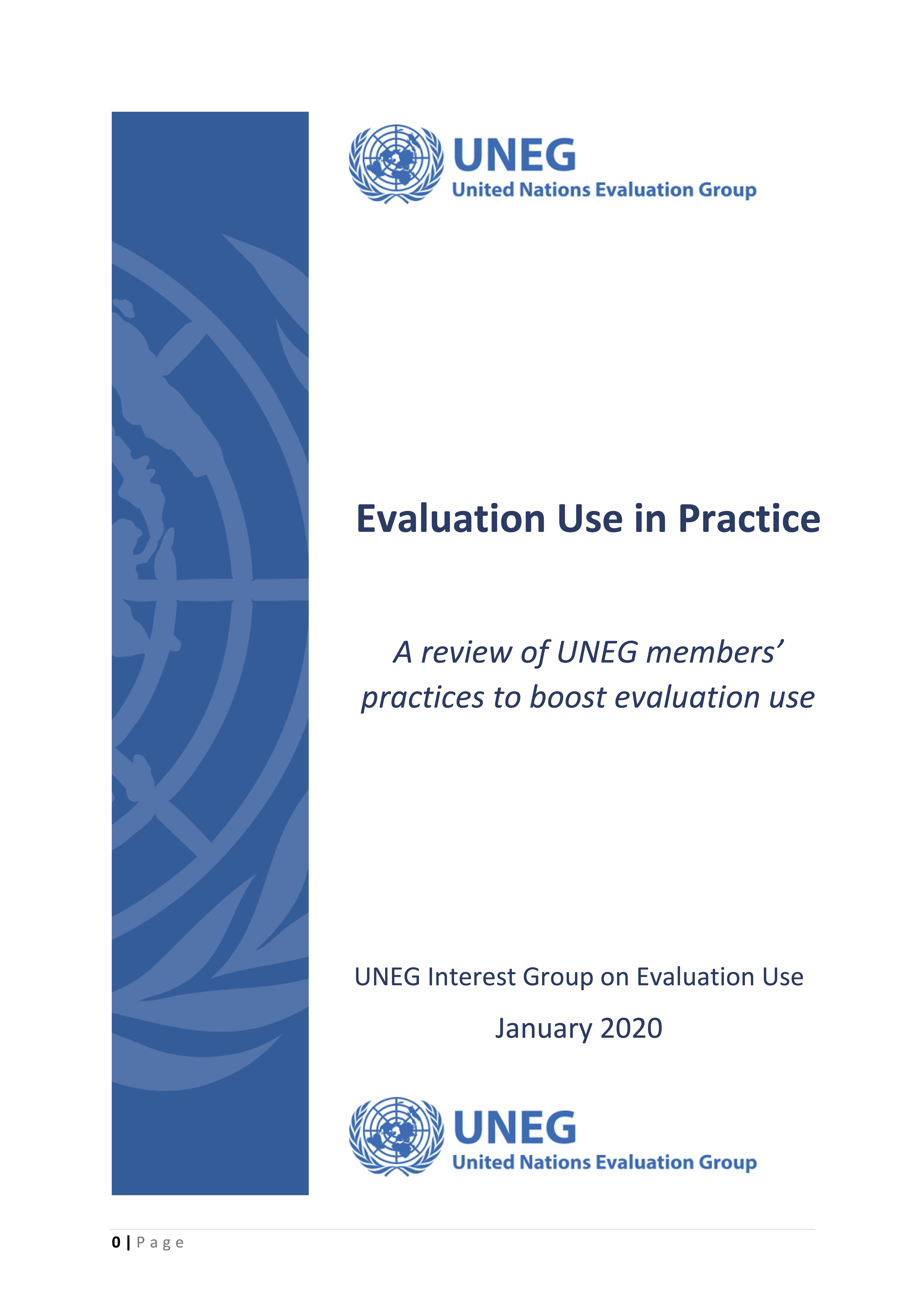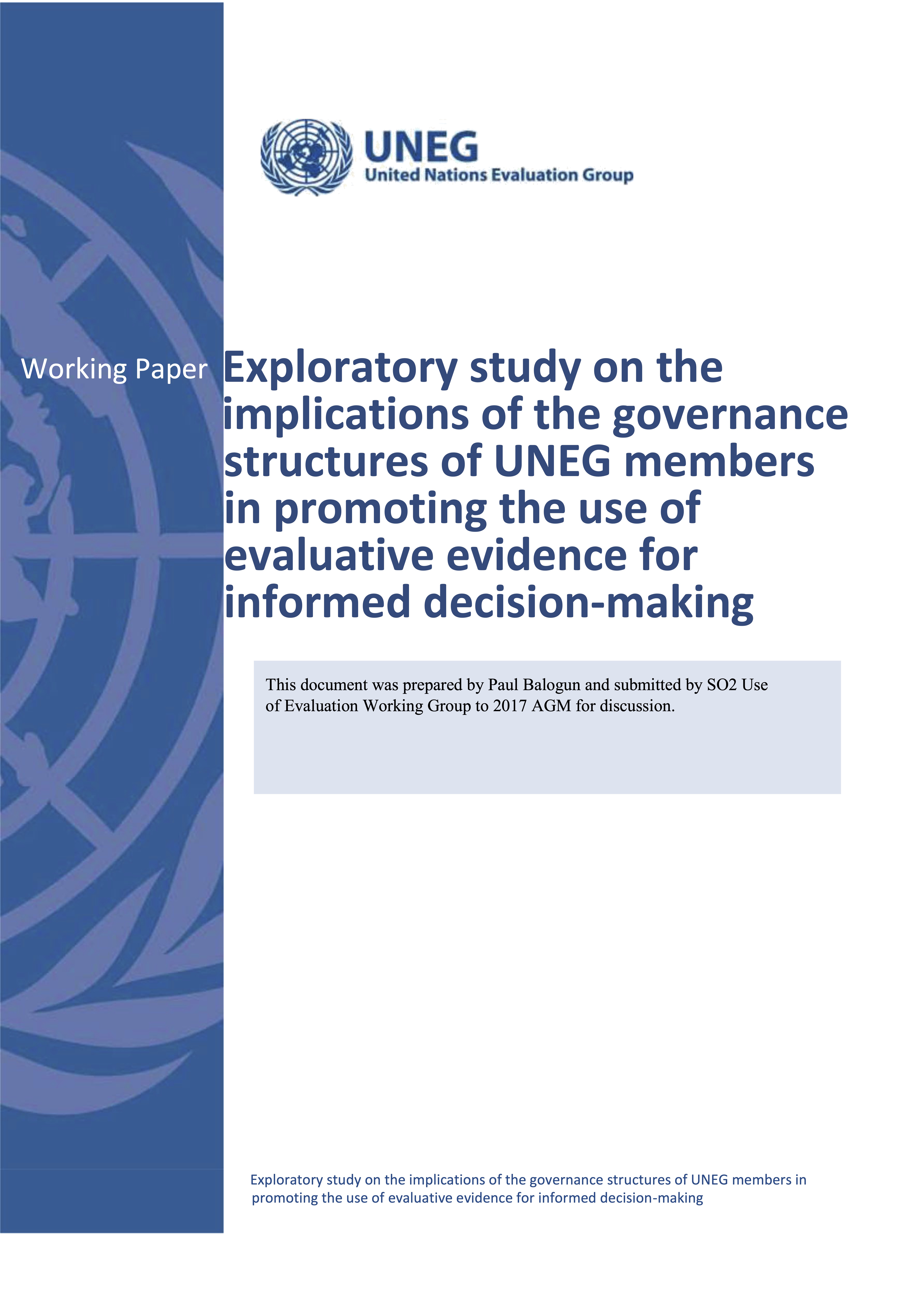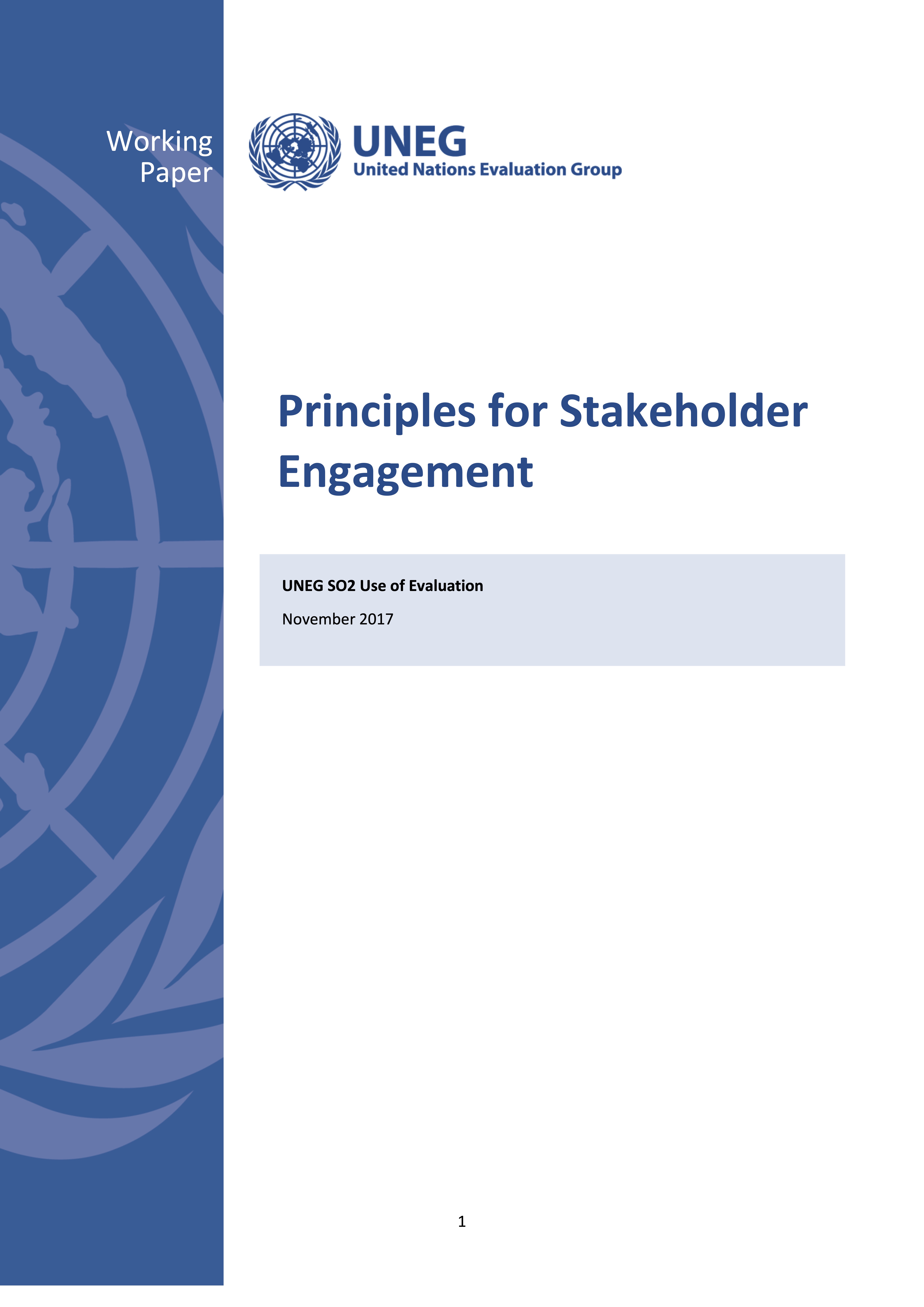Overview
Use has always been part of UNEG’s core work. Initially established in 2015 as an Interest Group, and a Working Group since 2023, the overall objective of the group has been to contribute to a better understanding of the factors that enable use of evaluation. More specifically, the group aims to identify good and potentially replicable practices to warrant the relevance of evaluation generated knowledge to the needs of target users, to further disseminate these practices as well as to understand what promotes use and to enhance evaluation products’ appeal to users. The Group has produced studies on the use of evaluation that identified aspects as critical to enhance the use of evaluations in the UN system.
Achievements to date
UNEG publications from the WG or related to use of evaluation:
- Advancing the Measurement of Evaluation Use, 2024 (unpublished, but presented at 2024 AGM)
- Evaluation Use in Practice (2020)
- Exploratory study on the implications of the governance structures of UNEG members in promoting the use of evaluative evidence for informed decision-making, 2018:
- Improved Quality of Evaluation Recommendations Checklist (2018)
- UNEG Principles for Stakeholder Engagement (2017)
- Evaluation Use in the UN System: Conclusions from the Data (2016)
Current areas of focus
The work plan of the UNEG Use of Evaluation Working Group consists of three work streams, focusing on:
- Enhanced use of evaluation through the organization of a series of webinars and a compendium of good practices based on the webinars organized;
- Relevant and practical measurement of use of evaluation through the definition of a clear framework for an additional suggested UNEG-wide indicator for measuring use; and
- Enhanced understanding of use of UN evaluation evidence by external stakeholders through the conduct of a study on “Understanding the use of UN commissioned evaluations by external stakeholders”.
Since 2023, the Working Group has organised a series of webinars, the recordings and one-page synopsis of which are available via the links below.
- Co-Creating Recommendations - Collaborative Approaches for Improved Evaluation Use, 26 November 2024
- From Recommendations to Actions - The Role of Management Responses in Promoting Evaluation Use, 12 September 2024
- Unlocking Value - Using Communication Strategies and Approaches to Increase Evaluation Use, 9 July 2024
- The Value of Evaluation in Decision Making, 20 November 2023
- Use of Evaluation - Challenging Our Assumptions of External Partners and Stakeholders, 16 March 2023







